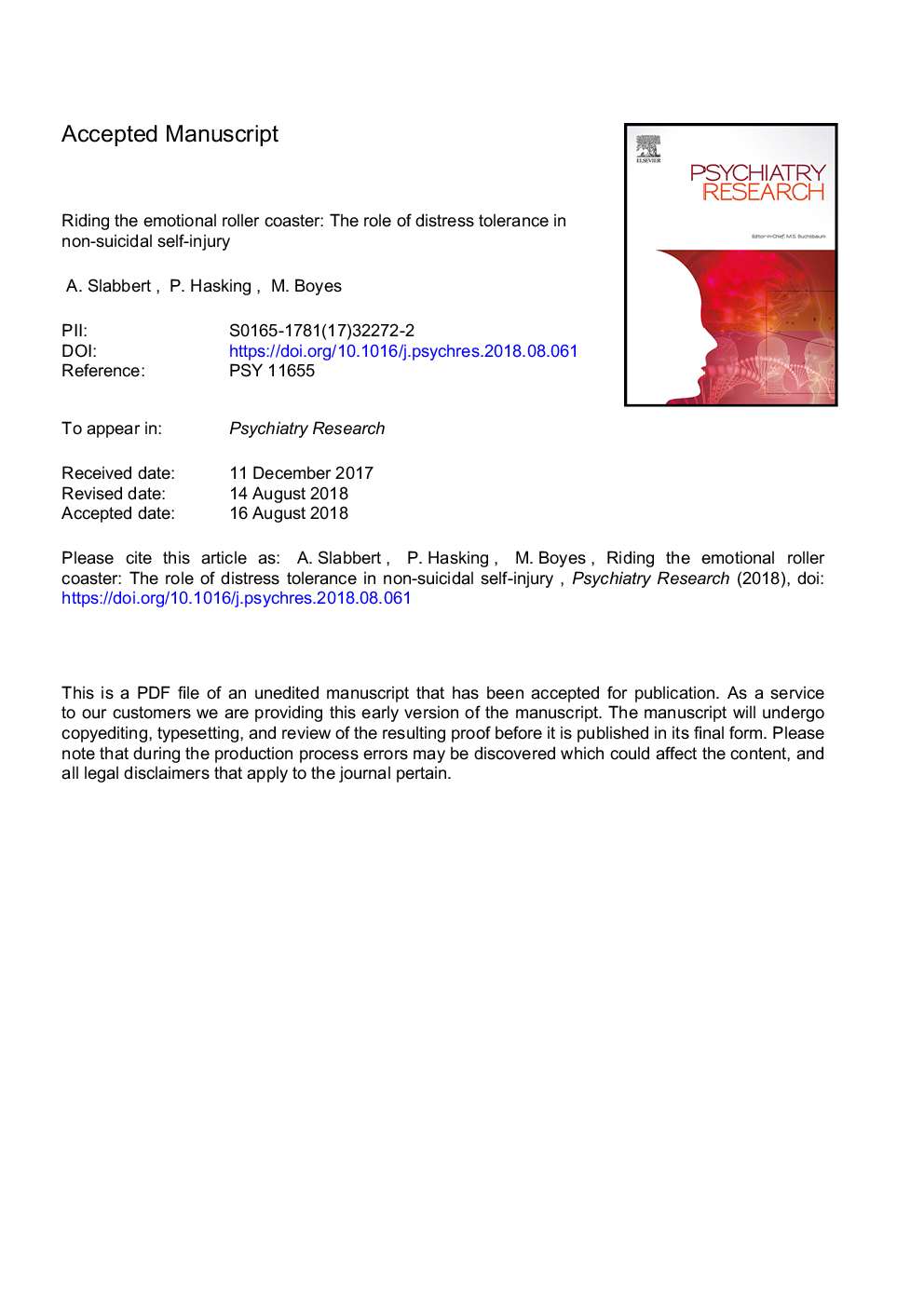| کد مقاله | کد نشریه | سال انتشار | مقاله انگلیسی | نسخه تمام متن |
|---|---|---|---|---|
| 10132284 | 1645557 | 2018 | 28 صفحه PDF | دانلود رایگان |
عنوان انگلیسی مقاله ISI
Riding the emotional roller coaster: The role of distress tolerance in non-suicidal self-injury
ترجمه فارسی عنوان
سوار غلتکی عاطفی: نقش تحمل دوری در خودسوزی غیر خودکشی
دانلود مقاله + سفارش ترجمه
دانلود مقاله ISI انگلیسی
رایگان برای ایرانیان
موضوعات مرتبط
علوم زیستی و بیوفناوری
علم عصب شناسی
روانپزشکی بیولوژیکی
چکیده انگلیسی
Non-Suicidal Self-Injury (NSSI) is the deliberate damage to one's bodily tissue without suicidal intent. The Emotional Cascade Model proposes NSSI functions as a distraction from 'cascades' of intense affect and rumination. Low distress tolerance is one factor thought to potentially amplify these cascades but has yet to be empirically tested. Using the Emotional Cascade Model as a framework, we investigated the moderating roles of rumination and distress tolerance in the relationship between affect intensity and NSSI. A sample of 400 university students between the ages of 17 and 62 years (Mâ¯=â¯21.02, SDâ¯=â¯5.32) completed well-validated measures of NSSI, affect intensity, rumination, and distress tolerance. As expected, rumination was associated with history of NSSI but only among individuals who reported high levels of distress tolerance. Further, affect intensity was positively associated with NSSI frequency, but only at low levels of rumination and distress tolerance. These results provide promising insight into potential prevention and intervention initiatives that may target rumination and distress tolerance to reduce the likelihood and frequency of self-injury.
ناشر
Database: Elsevier - ScienceDirect (ساینس دایرکت)
Journal: Psychiatry Research - Volume 269, November 2018, Pages 309-315
Journal: Psychiatry Research - Volume 269, November 2018, Pages 309-315
نویسندگان
A. Slabbert, P. Hasking, M. Boyes,
